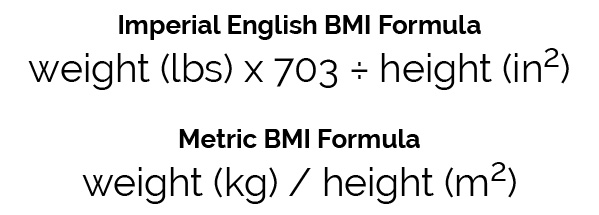What is BMI?
If you’re looking for information on the origin of BMI, its accuracy and what a healthy BMI is, you’ll find it here.
Learn all about BMI and what it is here. On this page we will give you a brief history of BMI, why it is used, how accurate it and much more. Having a good BMI is important, your BMI is an important factor in gauging your overall health as having a high BMI can put you at risk of further health complications such as diabetes and strokes.
Start Your Weight Loss Journey Today!
Get in touch today for a free consultation with a weight loss specialist.
On this page you will learn:
- The origins of BMI
- The accuracy of BMI
- What is a healthy BMI
- Having an overweight BMI
The origins of BMI.
What is BMI? You may have wondered where Body Mass Index or BMI came from and why it’s used today. The 2 most important factors in determining whether a person is overweight or underweight are their height and weight. A crude example being if you’re 4ft tall and weight 19 stone you’re definitely overweight. The BMI index formula helps us understand how overweight we are and what is a healthy BMI for us as individuals.
Adolphe Quetelet the Belgian Polymath.

Adolphe_Quételet – Image Credit: Joseph-Arnold Demannez
Although it has become much more important in recent years due to the obesity crisis sweeping the western world, the BMI formula is not as recent a calculation as many people might think. It was actually conceived between 1830 and 1850 by the not so famous Belgian Polymath Adolphe Quetelet who came up with a formula for measuring obesity that was originally called the Quetelet Index of Obesity.
It has become the universally used formula for determining whether a person is overweight, underweight, healthy, obese or morbidly obese. Quetelet Index of Obesity is defined in the same way as the Metric BMI formula we know today by dividing an individual’s weight (kg) x by the square of their height (m2). There are variations on this calculation depending on your country of residence.
What is BMI formula?
- Imperial English BMI – weight (lbs) x 703 ÷ height (in2)
- Metric BMI – weight (kg) / height (m2)

Recent introduction.
Although BMI is over a 100 years old it has only become the global standard since the 1980’s. Before that most doctors used the limited ‘weight for height’ tables, one for men, one for women. It was during the 80’s that the obesity of nations started to become an issue. Government initiatives were subsequently launched in the 90’s for healthy eating and exercise programs and BMI was formally introduced to the public.
What is BMI Accuracy?
Although BMI is a good indicator of a whether a person is overweight or obese it is not a perfect measurement by any stretch. For example, muscle is much denser and heavier than fat and consequently body builders, boxers and other athletes can be miscalculated as being overweight according to the index.
A good GP will know what is a healthy BMI and look at other factors to determine whether you are outside of your ‘healthy’ weight for your height. Understanding what is BMI and using BMI alone to determine a person’s health would be foolish and bad practice. Additional assessments would need to take place such as age, diet, exercise patterns, family history and so on. This would help reach a much more informed conclusion about a person’s health in light of their possible weight issues.
Start Your Weight Loss Journey Today!
Get in touch today for a free consultation with a weight loss specialist.
In a recent article on the Science Mag website Dr. Rexford S. Ahima is quoted as saying:
“There is an urgent need for accurate, practical and affordable tools to measure fat and skeletal muscle, and biomarkers that can better predict the risks of diseases and mortality. Advances to improve the measurement of obesity and related factors will help determine the optimal weight for an individual, taking into account factors such as age, sex, genetics, fitness, pre-existing diseases, as well novel blood markers and metabolic parameters altered by obesity.”
What is a healthy BMI?
A healthy Body Mass Index (BMI) or being close to your ideal weight is different for men and women. Generally it is accepted that for most adults a healthy BMI is between 18.5 and 24.9. If you have a BMI of 25 or more it is a good idea to get yourself checked out by your G.P. or a professional weight loss doctor.
Basic BMI Table.
| BMI | Assessment |
| Below 18.5 | Underweight |
| 18.5-25 | Healthy |
| 25-30 | Overweight |
| 30-40 | Obese |
| 40+ | Morbidly Obese |
Being underweight is also an issue so if your BMI index is under 18.5 you should also check in with your G.P. for a consultation. You can calculate your BMI here.
Having an overweight BMI.
If you have a BMI of over 25 it is a good idea to visit your doctor or see a weight loss specialist for advice and further assessment. Obesity and being overweight can expose you to a range of health problems including:
- heart disease
- stroke
- type 2 diabetes
- some types of cancer
- high blood pressure
- kidney disease
Speaking to a healthcare professional will help you understand your condition better and put you on the road to a healthier weight. Your G.P. or weight loss professional will offer help and guidance on diet, exercise, prescription weight loss medication and anything other contributing factors.
